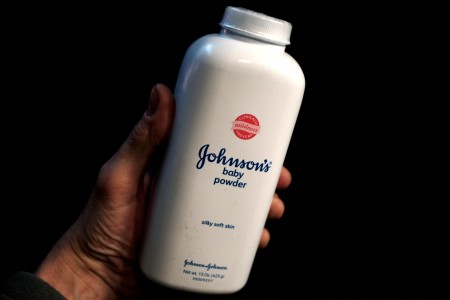By Brendan Pierson
(Reuters) – An Oregon judge has overturned a $260 million verdict against Johnson & Johnson in a lawsuit brought by a woman who said she got mesothelioma, a deadly cancer linked to asbestos exposure, from inhaling the company’s talc powder, the company said on Monday.
Judge Katharine von ter Stegge of the 4th Judicial District Circuit Court in Portland, Oregon, granted J&J’s motion to toss the verdict and hold a new trial in the case at a hearing late on Friday, according to a spokesperson for the company. Von ter Stegge is expected to issue an opinion explaining her order in the coming days.
Erik Haas, J&J’s worldwide vice president of litigation, said the original verdict was “the direct result of numerous egregious errors committed by the plaintiff’s lawyers” and had “no basis in the law or science.”
A lawyer for the Oregon woman, Kyung Lee, who sued the company along with her husband, did not immediately comment.
J&J is facing more than 62,000 plaintiffs’ claims that its baby powder and other talc products were contaminated with asbestos and caused cancer. Most of the lawsuits are over ovarian and other gynecological cancers, with a small minority over mesothelioma. J&J has said that its talc is safe, does not contain asbestos and does not cause cancer.
Lee was diagnosed with mesothelioma last year at age 48. She alleged that she inhaled asbestos-tainted talc over more than 30 years, beginning when her mother used it on her when she was a baby and later when she used it herself as a deodorant.
A lawyer for J&J said at trial that Lee’s illness was likely caused by exposure to asbestos used at a factory near where she grew up.
Friday’s decision comes as J&J is preparing to have a subsidiary file bankruptcy in order to settle the ovarian and other gynecological cancer lawsuits for about $9 billion. The company has said it has secured support for the deal from well over 75% of claimants, the legal threshold for a judge to approve the kind of bankruptcy settlement J&J has proposed.
The bankruptcy filing and settlement would not affect mesothelioma cases like Lee’s.
(Reporting By Brendan Pierson in New York; Editing by Alexia Garamfalvi and Leslie Adler)







